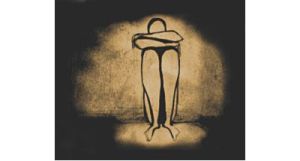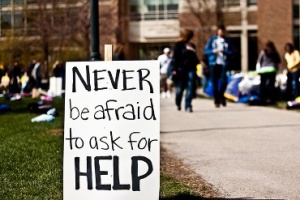He couldn’t have known. He was just being a good guy, a gracious manager who gave us permission to use the back room of the restaurant for a family gathering.
Of course a restaurant wants patrons, and large parties mean large tabs and tips (hopefully). But he was kind enough to let me come in a few hours early and set up for our celebration.
My son surprised me by wanting to help. He was 15 and life was challenging him in some very big ways at the time. But it was his idea. He asked.
“Mom, can I go with you? Can I help?”
How does a heart both break and soar at the same time? A mother’s heart knows how, and my delighted shattered heart welcomed his company. He couldn’t have known what a gift it was to me that he asked, that he wanted to join me.
And not just join me, but help me in staging a surprise for my husband, his stepdad, whom he loved with deep affection as well as deep pain for reasons I’m not sure any of us understood at the time.
We concocted a cover story. Well, actually I concocted the cover story. I coached him on the details. I should be embarrassed about how easy it was for me, but I’m not.
Off we went to pick up the balloons, the candy, the cake, the colors, and the mischievousness that frame a surprise party. There were Skittles and M&Ms strewn down the center of the long table, sweet edible confetti for anyone who chose to partake. There were balloons tied to chairs, and a general spreading of Technicolor merriment in anticipation of the celebration yet to come.
We giggled and speculated and worked up a sweat, then went home after thanking the manager yet again for his kindness in allowing us this privilege. He could have made money off those tables while they sat there waiting for our crowd to arrive. But we were granted favor. And it was a last in a lifetime chance. He couldn’t have known.
We walked into the restaurant a while later and were told my step-daughter and her husband were already seated near the back, waiting for us to join them for a quick dinner before they had to head home. The hostess escorted us to our party room, where my husband took two steps in then turned around and almost left. He wasn’t angry, just overwhelmed.
He’d told me he didn’t want me to make a big deal of his birthday, just like he never wanted anyone to make a big deal over him. But it was a big deal birthday, one that ended in a zero.
And it had been less than a year since we’d received the news that he had an untreatable invader in his body, and had been given instructions to “go home and make the most of your life.” In fact, the doctors were more than a little surprised that he was still breathing.
But he’d told me I couldn’t make a big deal. So I didn’t. All I did was agree to be a partner in crime to my step-daughter. She gave me the gift of allowing me to point to her and say with a smile, “She did it. It was her idea.” So I was able to honor his wish while also honoring hers.
We all knew we might be living on borrowed time. But there was a determination that would not be denied, that of a grateful family wanting to honor this man who loved us all so well. He couldn’t have known.
We laughed. We dined. We ate the cake and the sweet confetti. We took pictures in front of the birthday banner and tried to visit with everyone seated around that long table. It was a wonderful time with family ties four generations deep, and he said he’d had no idea it was coming. I’m pretty sure I believe him even now.
A year later he was lying in a hospital bed, fighting hard for his life. It was a fight he was soon to lose. And it made the memory of that celebration a treasure all the sweeter. We couldn’t have known.
** ** ** ** **
(Today’s post is in honor of what would have been my late husband’s birthday. We couldn’t have known that his son-in-law, one of many who helped with the birthday ruse at our neighborhood Macaroni Grill, would qualify to be – and insist on becoming – a live liver-donor for my husband.
It was his last, best chance. On his final birthday my husband underwent a surgery that we all hoped would save his life. He died two months later. But what a fantastic celebration of life we’d had only one short year earlier. I’ll always be grateful for that.)
© Monica Simpson and Help To Hope, 2014
https://www.facebook.com/HelpToHope
https://twitter.com/HelpToHope
















